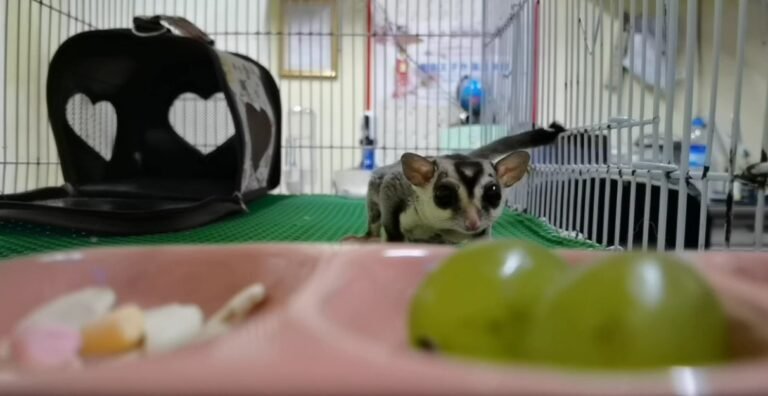Can Sugar Gliders Eat Grapefruit
When it comes to pampering our adorable sugar gliders, providing them with a balanced and safe diet is essential. Amidst the array of fruits available, grapefruit often stands out for its unique taste and nutritional benefits. But here’s the critical question: “Can sugar gliders eat grapefruit?” As a responsible pet owner, ensuring your furry companions consume foods that enhance their health is paramount. In this informative article, we will delve into the world of sugar glider nutrition, exploring the compatibility of grapefruit with their dietary requirements.
Understanding the nuances of their diet can prevent potential health issues and ensure their happiness. Join us as we uncover the truth about incorporating grapefruit into your sugar glider’s menu, shedding light on the dos and don’ts that every sugar glider enthusiast should know.
Why is grapefruit harmful to sugar gliders?
Grapefruit contains an organic compound called psoralen, which can cause photosensitivity in sugar gliders. Photosensitivity refers to the heightened sensitivity to light and can result in skin irritation, rashes, and even burns when sugar gliders are exposed to sunlight or artificial UV light sources.
This compound is found in both the peel and juice of grapefruits, so it’s important to avoid feeding any part of the fruit to your sugar glider. Even small amounts of psoralen can have adverse effects on their health.

Moreover, grapefruit is also high in citric acid, which can disturb the digestive system of sugar gliders. These small marsupials have sensitive stomachs and feeding them acidic foods like grapefruit can lead to digestive issues such as diarrhea, stomach upset, and even vomiting.
Safe fruits for sugar gliders
While grapefruit is off the menu for sugar gliders, there are plenty of other fruits that you can safely feed them. Here are some options:
1. Apples:
Apples are an excellent choice for sugar gliders as they provide essential vitamins and minerals. However, it’s important to remove the seeds and core before feeding them to your pet.
2. Grapes:
Grapes are a favorite among sugar gliders. They are rich in antioxidants and can be a tasty and healthy treat for your furry friend. Just make sure to cut them into small pieces to prevent choking hazards.
3. Bananas:
Bananas are another fruit that sugar gliders can safely enjoy. They are packed with potassium and other nutrients, and their soft texture makes them easy for sugar gliders to eat.
4. Blueberries:
Blueberries are small and full of antioxidants, making them a great snack for sugar gliders. They can be fed fresh or frozen, but make sure to thaw frozen blueberries before offering them to your pet.
5. Papaya:
Papaya is a tropical fruit that is both delicious and nutritious for sugar gliders. It contains enzymes that aid in digestion and is high in vitamins A and C.
These are just a few examples of safe fruits that you can feed your sugar glider. Remember to always introduce new foods gradually and monitor your pet for any adverse reactions.
Frequently Asked Questions
Q: Can sugar gliders eat citrus fruits?
No, sugar gliders should not consume citrus fruits like oranges, lemons, or grapefruits. These fruits are too acidic for their delicate digestive systems and can result in gastrointestinal problems.
Q: How much fruit should I feed my sugar glider?
Fruit should only make up a small portion of your sugar glider’s diet, around 10% to 15%. The majority of their diet should consist of a balanced commercial sugar glider food, supplemented with fresh vegetables and small amounts of lean protein.
Q: Are there any other foods that sugar gliders should avoid?
Yes, sugar gliders should not be fed chocolate, caffeine, alcohol, avocado, onions, garlic, or any processed or sugary foods. These can be toxic to them and can lead to serious health issues.
Q: Can sugar gliders eat dried fruits?
While dried fruits may seem like a convenient option, they should be avoided for sugar gliders. Dried fruits are high in sugar and can cause dental issues and contribute to weight gain. Stick to fresh fruits as a healthier choice.
Final Thoughts
In conclusion, sugar gliders should not eat grapefruit due to its potential toxicity and high acidity. While it may be tempting to offer a variety of fruits to your furry friend, it’s crucial to prioritize their health and only feed them safe options. Stick to fruits like apples, grapes, bananas, blueberries, and papaya, and remember to introduce new foods gradually. By providing a well-balanced diet, you can ensure your sugar glider stays healthy and happy.







